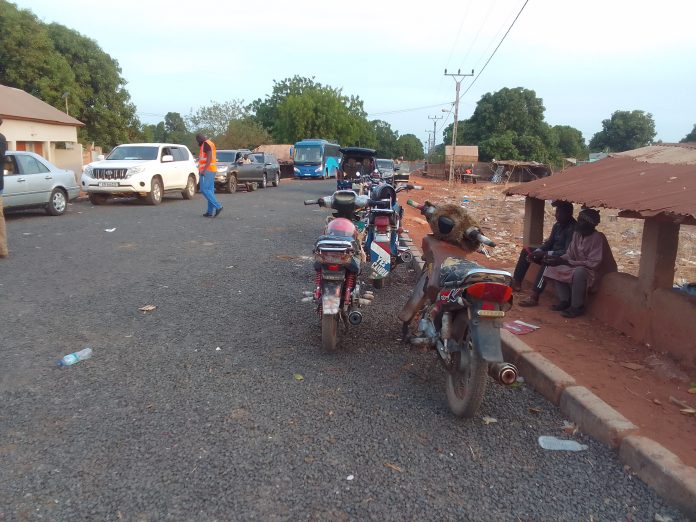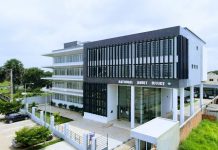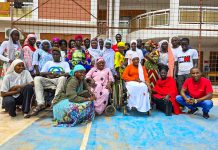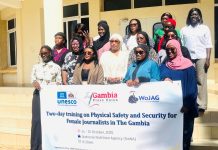By Nelson Manneh
Infrastructural development, particularly road construction, makes life easy for every Gambian, especially those in rural Gambia, where roads connect neighbourhoods and boost business activities between communities.
Donkey carts, bikes, pick-up trucks and pedestrians can be seen in communities doing various types of business. This, many say, is achievable because of the good road network that connects communities.
However, the area of focus for most governments in terms of development differs.
As residents in rural Gambia see the importance of roads as a transformative tool for their remote communities, the construction of roads in rural communities has now become a game-changer for many businesses, making life easier for many people.
Regions like the Central River Region, which is commonly referred to as the breadbasket of the Gambia, are well known for their farming activities. Many communities in this Region suffered various setbacks as a result of poor road infrastructure, especially the inaccessibility of markets in the past.
“I am not a politician, and I do not support any political party. But any Ministry or department that is working to improve the living conditions of the people of the country should be commended. I am a biker who transports both people and goods from one community to another, and I want to say that the construction of roads has boosted our daily earnings and survival,” one Alagie Darboe told this reporter, who was seen transporting goods.
In the North Bank, Central River, Lower River and Upper River Regions of the Gambia, roads overlap each other to connect communities to the main Trans-Gambia Highway on both banks of the River Gambia.
Outcast villages around Basse in the Upper River Region of the Gambia are now connected to the main rural towns, making business easier by boosting economic activities within the area.
In his visit to inspect ongoing road construction projects, Minister of Works Ebrima Sillah said ongoing road construction works within rural Gambia are meant to connect communities to public facilities and markets.
“It is very disheartening for a farmer to grow his or her crops with the hardship that accompanies farming, and still suffer to access markets after harvesting, all because there is no good road network and other services that will make this easier for them. Today, if you visit the Upper River Region, you will realise that all the neighbouring communities are connected to the major town of Basse. This will not only ease the burden on their businesses, but it will also give them easy access to public facilities like hospitals, etc.,” he said.
Sillah said the ongoing road construction is a testament to the government’s commitment to transforming rural farming communities and providing them with facilities like electricity to improve their living conditions.
As a source of income for many people in rural Gambia, farming is mainly done during the rainy season. However, the construction of new roads, especially in the Central River Region, has changed the narratives as the number of bikers who transport people and goods from the Trans-Gambia Highway to ‘off-road’ communities increases daily.
“We were very few here because the road was bad. In the past, we used to work for people who repaired motorcycles. But with this new development, the number of ‘bikers’ has increased and business is more lucrative than it used to be,” Arafang Fatty, one of the bikers at Karantaba-Reneru village, told this reporter.
Work on the twelve-kilometre loop that runs from Njau to Carol’s Wharf is also in progress, and site cleaning and earthworks have been completed for now, together with the construction of drainage structures. The double surface dressing of this road is 75% complete.
“Life in rural Gambia is gradually transforming, and as many communities now enjoy tar roads, electricity and other social amenities, the people have now started to reap the benefits of the tax they pay to the government. In those days, we used to force Alkalos to engage their people to pay tax, but now they do it without waiting to hear from us,” Demba Samateh, the Deputy Governor of North Bank Region, told Foroyaa.
Mr. Samateh said no government satisfies all the needs of its people, but said when it comes to road infrastructure development, especially in rural communities, they must commend the government of the Gambia on what they have done.
“There were communities that never thought that they would have such roads. But today they are not only blessed with tarred roads, but with electricity as well. We want the government to continue with their ongoing rural transformation program so that young people in the rural communities will not migrate to urban centres in search of greener pastures,” he noted.
Meanwhile, work on the 12.18 km road that runs from Basse Manneh Kunda to Dampha Kunda and Gambisara is in progress, with the earthworks now completed, culverts and sub-base now complete, except for access junctions. Also, work on the 9.20 km loop that runs from Basse to Dampha Kunda and Tambasansang is also in progress. The 2.66 km road that runs from Chamoi to Dampha Kunda is also progressing as the earthworks, culverts, and sub-base are now complete.
“The wandering of pregnant women to access health facilities at the time of delivery has come to pass. You can now travel from Tambasansang to Basse in less than an hour. Before, when a woman is pregnant and in her month of delivery, we make sure that she stays in Basse so that she can be close to the health facility whenever the need arises. But now, this is history,” Fatou Dukureh, a native of Tambasansang village, told this reporter.
She said the road has improved their businesses more than ever before.
“In the past, there were only a few bikers who came from Basse to sell their goods here. But today, this has changed. Within a day, one can see more than five bikers roaming from one street to another, selling their goods. This is progress for our area. We do not want to be farming during the rainy season alone. We want to do it all year round. Now that the government has provided us with such good roads, we need gardens as well so that we can start cultivating vegetables to sell in various markets,” Fatou Kamaso of Bafuloto village told Foroyaa.
Life in the rural Gambia is gradually transforming communities by inter-connecting them with good roads and electricity. Wherever new roads are constructed, electricity poles are also run alongside to provide light to communities.




















